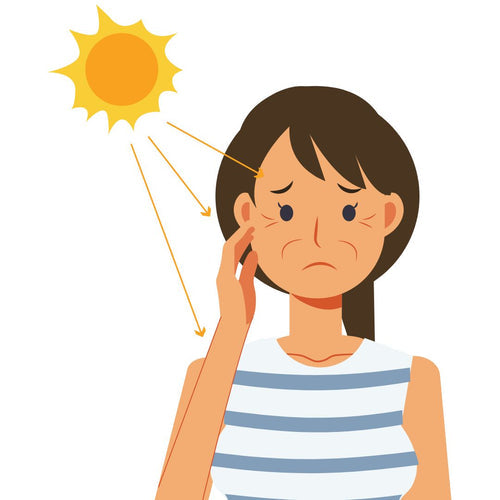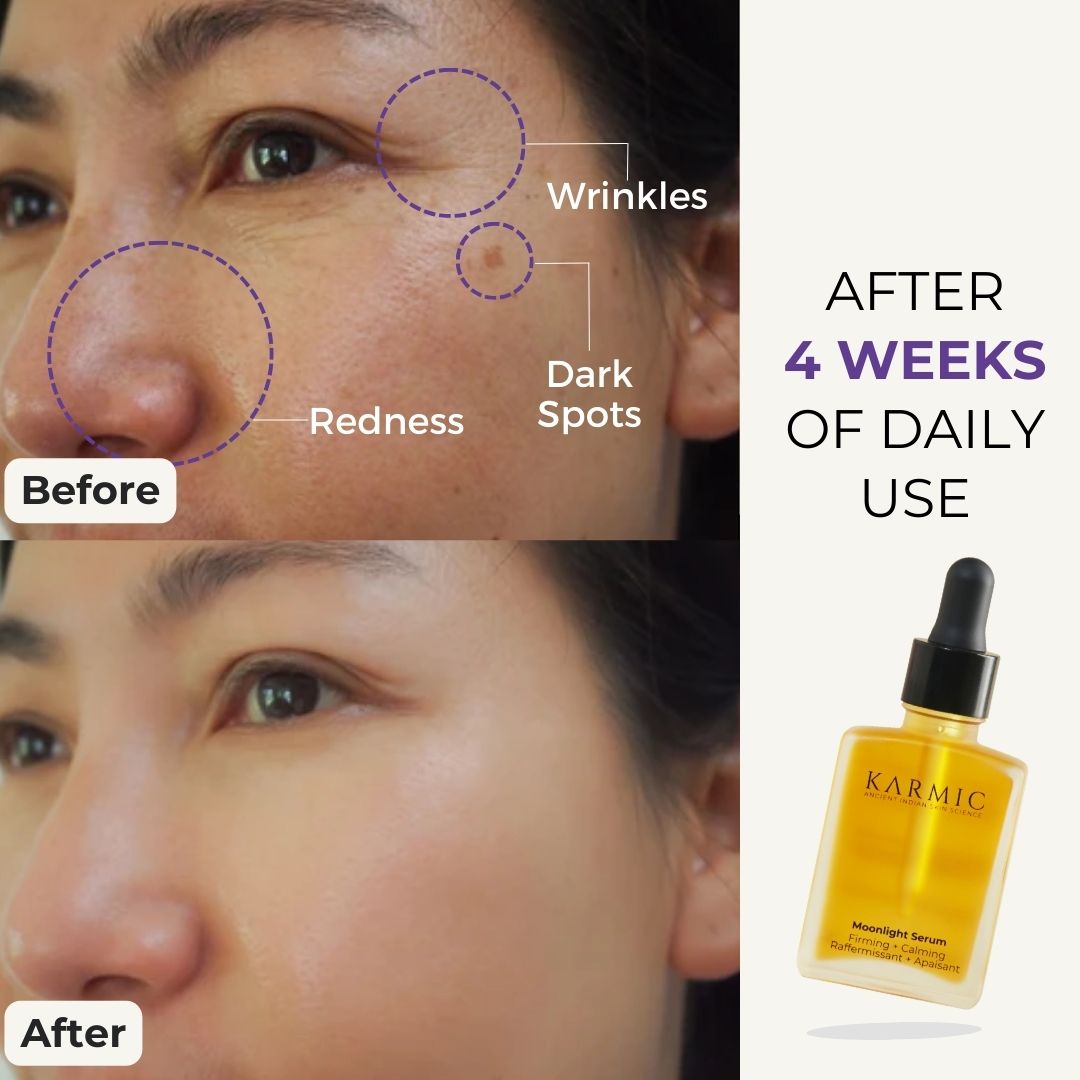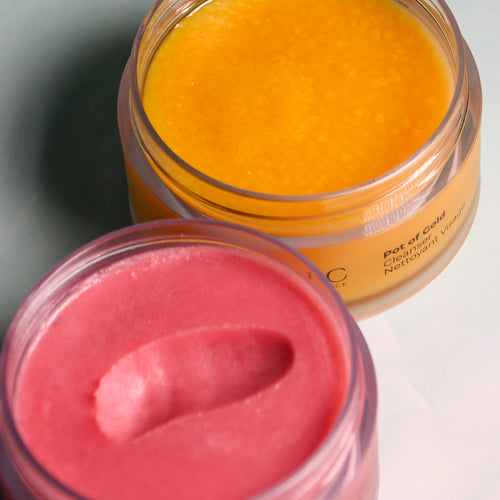If you're over 30, you've likely noticed that the effects of sun exposure aren't as forgiving as they once were. From fine lines to dark spots, the sun can play a significant role in how our skin ages.
But why does this happen, and how can we protect ourselves? This article explores the impact of UV rays and sun exposure on wrinkle formation while offering practical tips and solutions.
Understanding UV Rays and Their Impact on Skin
UV rays (ultraviolet rays) come from the sun and are classified into two main types that affect our skin: UVA and UVB. Both contribute to the ageing process, but they act in different ways.
- UVA Rays: These are the primary culprits behind photoageing and wrinkles. They penetrate deep into the skin, breaking down collagen and elastin, leading to sagging skin and lines.
- UVB Rays: While they primarily cause sunburn, they also contribute to the ageing process over time.
How UV Exposure Causes Wrinkles
Our skin has a natural barrier that protects it from environmental stressors. However, prolonged sun exposure can significantly disrupt this barrier. Here’s a step-by-step breakdown of how UV rays contribute to wrinkle formation:
- Collagen Breakdown: UV exposure triggers free radicals, which damage collagen and elastin fibres responsible for keeping the skin firm and elastic.
- Reduced Skin Cell Renewal: UV rays slow down the natural process of skin regeneration, leading to a dull, tired appearance.
- Inflammation: Chronic sun exposure causes inflammation that can accelerate the ageing process and contribute to wrinkle formation.
- Thinning of the Skin: UV rays thin the epidermis, making lines more pronounced.
Research Insights: The Impact of Sun Exposure on Wrinkles
- According to the World Health Organization (WHO), up to 90% of visible skin changes attributed to ageing are caused by UV exposure.
- A study published in the journal Clinical, Cosmetic and Investigational Dermatology found that people who used sunscreen daily showed a 24% improvement in skin ageing signs compared to those who didn’t.
- Research in Photodermatology, Photoimmunology & Photomedicine concluded that sun damage can occur even on cloudy days or indoors due to the penetration of UVA rays.
Practical Tips to Protect Your Skin
While the sun is unavoidable (and a source of joy for many), there are effective ways to protect your skin from UV damage and minimise wrinkle formation.
1. Use Broad-Spectrum Sunscreen
- Why: Protects against both UVA and UVB rays.
- How: Choose SPF 30 or higher and reapply every 2 hours.
- Recommendation: Check out the Moonlight Serum from Karmic Skin, which pairs well with sunscreen for complete protection.

2. Incorporate Antioxidants
- Why: Antioxidants neutralise free radicals caused by UV exposure.
- How: Use Vitamin C serum like the Karmic Skin Sunlight Serum or eat antioxidant-rich foods like berries, spinach, and nuts.
3. Stay Hydrated
- Why: Dehydrated skin is more prone to damage.
- How: Drink plenty of water and use a moisturiser that locks in hydration.
4. Cover Up
- Why: Direct sun exposure accelerates ageing.
- How: Wear wide-brimmed hats, sunglasses, and long-sleeved clothing.
5. Avoid Sun Exposure During Peak Hours
- Why: UV rays are strongest between 10 a.m. and 4 p.m.
- How: Stay indoors or seek shade during these hours.
6. Incorporate Bakuchiol Serum into Your Routine
- Why: Bakuchiol is a natural retinol alternative that reduces wrinkles without causing irritation.
- How: Apply the Moonlight Serum nightly for best results.
7. Use Night Creams with Anti-Ageing Benefits
- Why: Nighttime is when your skin repairs itself.
- How: Opt for the Sleepytime Gelly from Karmic Skin to wake up to a refreshed, youthful complexion.
Addressing Counterarguments
Counterargument: "I have darker skin and don't need sunscreen."
Response: While melanin offers some protection, it does not make you immune to UV damage. Wrinkles, hyperpigmentation, and even skin cancer can still occur, so sunscreen is essential for all skin tones.
Counterargument: "I only need sunscreen on sunny days."
Response: UVA rays, responsible for premature ageing, can penetrate clouds and even windows. Therefore, sunscreen should be worn daily, regardless of the weather.
Counterargument: "Using sunscreen will cause Vitamin D deficiency."
Response: Limited sun exposure can still provide adequate Vitamin D, or consider dietary sources and supplements if necessary.
FAQs About Sun Exposure and Wrinkles
Q1: Can I reverse sun damage and wrinkles once they appear?
While you can't completely reverse the damage, using Vitamin C serum and sunscreen can reduce the appearance of wrinkles and prevent further damage. Night creams like Sleepytime Gelly can help revitalise your skin.

Q2: Is it okay to tan if I wear sunscreen?
Even with sunscreen, tanning indicates UV damage. It's best to avoid intentional tanning and opt for self-tanning products instead.
Q3: How much sunscreen should I apply?
Apply at least a teaspoon of sunscreen to your face and neck, and more to cover your body if you're heading outdoors.
Q4: Does wearing makeup with SPF provide enough sun protection?
Makeup with SPF is not enough on its own. Use a broad-spectrum sunscreen as your base before applying makeup.
Q5: Is it true that sunscreen can clog pores and cause breakouts?
Look for non-comedogenic sunscreens that are specifically formulated not to clog pores.
Conclusion
In conclusion, UV rays and sun exposure significantly contribute to wrinkle formation and premature ageing. However, with the right strategies and products, like the Moonlight Serum from Karmic Skin, you can protect your skin and maintain a youthful appearance. Embrace a comprehensive skincare routine that includes antioxidants, hydration, and most importantly, a moisturising sunscreen to keep those wrinkles at bay.
Let’s all take better care of our skin, starting today. Cheers to radiant, wrinkle-free skin! 🌟




